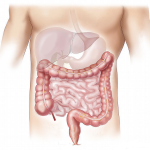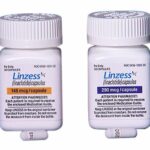Why Is Linzess Dangerous? (Explained)

Linzess (Linaclotide) is a medication used to treat constipation-predominant irritable bowel syndrome (IBS-C) and chronic idiopathic constipation. It was first approved by the US Food and Drug Administration (FDA) in August 2012.
The development of Linzess began in the early 2000s by Ironwood Pharmaceuticals and its partner Forest Laboratories (now Allergan), who worked together to discover and develop novel drugs that target gastrointestinal disorders. They discovered linaclotide, a peptide that acts locally in the intestine to regulate bowel movements.
Clinical trials began in 2005, and in 2008, the results of a Phase III trial showed that linaclotide was effective in improving bowel function and reducing abdominal pain in patients with chronic constipation. In 2010, another Phase III trial showed that linaclotide was also effective in treating IBS-C.
After several more clinical trials, Linzess was approved by the FDA in 2012. Since then, it has become a popular treatment option for patients with IBS-C and chronic constipation, and it is now available in many countries worldwide.
How Linzess Works
Linzess (Linaclotide) works by targeting the guanylate cyclase-C (GC-C) receptor in the lining of the intestine. When linaclotide binds to the GC-C receptor, it stimulates the production of cyclic guanosine monophosphate (cGMP), which in turn promotes fluid secretion into the intestine and increases bowel motili
This process helps to relieve constipation by softening the stool and increasing the frequency of bowel movements. Additionally, Linzess has been shown to reduce abdominal pain and discomfort in patients with IBS-C, which may be due to its effects on reducing the sensitivity of pain receptors in the gut.
It’s important to note that Linzess acts locally in the intestine and is not absorbed into the bloodstream, which helps to minimize potential side effects. However, like all medications, it may have some potential side effects, including diarrhea, abdominal pain, and bloating.
What happens when you start taking Linzess?
When you start taking Linzess (Linaclotide), you may experience some changes in bowel movements and gastrointestinal symptoms. These effects are typically seen within the first few days of treatment and may include:
1. Increased bowel movements: You may notice that you are having more frequent bowel movements than before. This is a normal effect of Linzess and is due to the medication’s ability to increase bowel motility.
2. Softening of stool: Linzess can help to soften the stool, which may make bowel movements easier and more comfortable.
3. Abdominal discomfort: Some patients may experience mild abdominal discomfort, such as bloating or cramping, when they start taking Linzess. This effect usually resolves within a few days.
4. Diarrhea: In some cases, Linzess may cause diarrhea. If you experience severe or persistent diarrhea, it’s important to contact your healthcare provider.
It’s important to note that Linzess is a prescription medication and should only be taken as directed by your healthcare provider. If you have any questions or concerns about starting Linzess, it’s important to discuss them with your healthcare provider.
Why is Linzess dangerous?
Linzess (Linaclotide) is generally considered a safe and effective medication when used as directed by a healthcare provider. However, like all medications, it may have some potential risks and side effects.
The most common side effects of Linzess include diarrhea, abdominal pain, and bloating. In rare cases, Linzess may cause severe diarrhea, dehydration, and electrolyte imbalances, which can be serious and even life-threatening.
Additionally, there are certain situations in which Linzess may not be safe or appropriate for use. For example, it is not recommended for patients with a history of bowel obstruction, severe diarrhea, or other gastrointestinal disorders. It is also not recommended for use during pregnancy or breastfeeding.
Furthermore, some medications can interact with Linzess and may increase the risk of side effects. It’s important to tell your healthcare provider about all medications, supplements, and herbal products you are taking before starting Linzess.
In summary, while Linzess is generally considered safe and effective for the treatment of constipation-predominant irritable bowel syndrome (IBS-C) and chronic idiopathic constipation, it’s important to discuss any potential risks or concerns with your healthcare provider before starting treatment.
What are the long term effects of taking Linzess?
The long-term effects of taking Linzess (Linaclotide) are not yet fully understood, as studies evaluating the safety and efficacy of the medication have typically been conducted over short-term periods (i.e., up to 26 weeks).
However, based on available evidence, Linzess appears to be well-tolerated over long-term use. In one study that evaluated the safety of Linzess over a 72-week period, researchers found that adverse events and serious adverse events were low, and there were no new safety concerns observed over time.
There is some concern that long-term use of Linzess may lead to electrolyte imbalances, particularly in patients with underlying renal or hepatic impairment. This is because Linzess can increase fluid secretion into the intestine, which may lead to loss of sodium, potassium, and other electrolytes.
However, this risk is generally considered low, and electrolyte imbalances are rare with appropriate use of the medication. Patients taking Linzess for extended periods of time may be monitored periodically by their healthcare provider to evaluate for any potential changes in electrolyte levels.
Overall, while the long-term effects of taking Linzess are not yet fully understood, the medication is generally considered safe and effective for the treatment of constipation-predominant irritable bowel syndrome (IBS-C) and chronic idiopathic constipation. It’s important to discuss any potential risks or concerns with your healthcare provider before starting long-term treatment with Linzess.
Is it safe to take Linzess while breastfeeding?
No, it is not known whether Linzess (Linaclotide) is excreted in human milk, and there is limited information on the use of Linzess in breastfeeding women. Therefore, the use of Linzess while breastfeeding is not recommended.
If you are breastfeeding and are experiencing constipation or other gastrointestinal issues, it is important to speak with your healthcare provider. They may be able to recommend alternative treatment options that are safe and effective for you and your baby.
In general, before taking any medication while breastfeeding, it is important to consult with your healthcare provider to ensure that it is safe for both you and your baby. They can help you weigh the risks and benefits of the medication and provide personalized recommendations based on your individual situation.
How long can you stay on Linzess?
The duration of treatment with Linzess (Linaclotide) depends on the individual patient and their condition. In general, treatment with Linzess is intended to be short-term and used only as long as needed to manage symptoms.
For the treatment of constipation-predominant irritable bowel syndrome (IBS-C), the recommended course of treatment with Linzess is 290 mcg once daily on an empty stomach for a maximum of 26 weeks. If symptoms persist after 26 weeks, your healthcare provider may recommend continued treatment on a case-by-case basis.
For the treatment of chronic idiopathic constipation, the recommended course of treatment with Linzess is 145 mcg or 290 mcg once daily on an empty stomach. Treatment should be continued only as long as needed to manage symptoms.
It’s important to note that while Linzess is generally considered safe and effective, long-term use of the medication is not recommended due to the potential risks of electrolyte imbalances and other adverse effects. Patients who require long-term management of their gastrointestinal symptoms may be advised to explore other treatment options with their healthcare provider.
Ultimately, the duration of treatment with Linzess will depend on the individual patient and their specific condition. It’s important to follow your healthcare provider’s instructions for use and to discuss any concerns or questions you may have about your treatment plan.
Does Linzess cause belly fat?
No, there is no evidence to suggest that Linzess (Linaclotide) causes belly fat. In fact, Linzess is primarily used to treat gastrointestinal conditions such as constipation-predominant irritable bowel syndrome (IBS-C) and chronic idiopathic constipation, which can often cause bloating and abdominal discomfort.
While Linzess can cause some gastrointestinal side effects, such as diarrhea and bloating, there is no evidence to suggest that it causes weight gain or the accumulation of belly fat.
It’s important to note, however, that weight gain and changes in body composition can be caused by a variety of factors, including lifestyle choices, genetics, and underlying medical conditions. If you are experiencing changes in your weight or body composition, it’s important to discuss these concerns with your healthcare provider, who can help identify any underlying causes and recommend appropriate treatment options.
What can I use instead of Linzess?
There are several other medications that can be used as a cheaper alternative to Linzess (Linaclotide) for the treatment of constipation-predominant irritable bowel syndrome (IBS-C) and chronic idiopathic constipation. Some common alternatives include:
1. Lubiprostone (Amitiza): Lubiprostone is an oral medication that works by increasing fluid secretion in the intestine, which helps to soften stool and ease constipation. It is approved for the treatment of chronic idiopathic constipation in adults and IBS-C in women aged 18 years and older.
2. Tegaserod (Zelnorm): Tegaserod is an oral medication that works by increasing the movement of the bowel, which can help to relieve constipation. It is approved for the treatment of chronic idiopathic constipation in women younger than 65 years of age.
3. Polyethylene glycol (Miralax): Polyethylene glycol is an osmotic laxative that works by drawing water into the bowel, which can help to soften stool and ease constipation. It is approved for the treatment of occasional constipation in adults.
4. Laxatives: There are many over-the-counter and prescription laxatives available, including bulk-forming laxatives, stool softeners, lubricant laxatives, and stimulant laxatives. These medications work by either increasing the amount of water in the stool, making it easier to pass, or by stimulating the muscles in the bowel to help move stool through the digestive tract.
It’s important to note that the choice of medication will depend on the individual patient and their specific condition. Your healthcare provider can help determine which medication is best for you based on your medical history, symptoms, and other factors. They can also provide guidance on how to use the medication safely and effectively.





